(Click the logo above for am easy, free way to support Wealth Potion)
In a recent newsletter, I shared the story of leaving my hometown… and how powerful it is to change your environment if you want to change your life.
Today, I want to zoom in on something more specific:
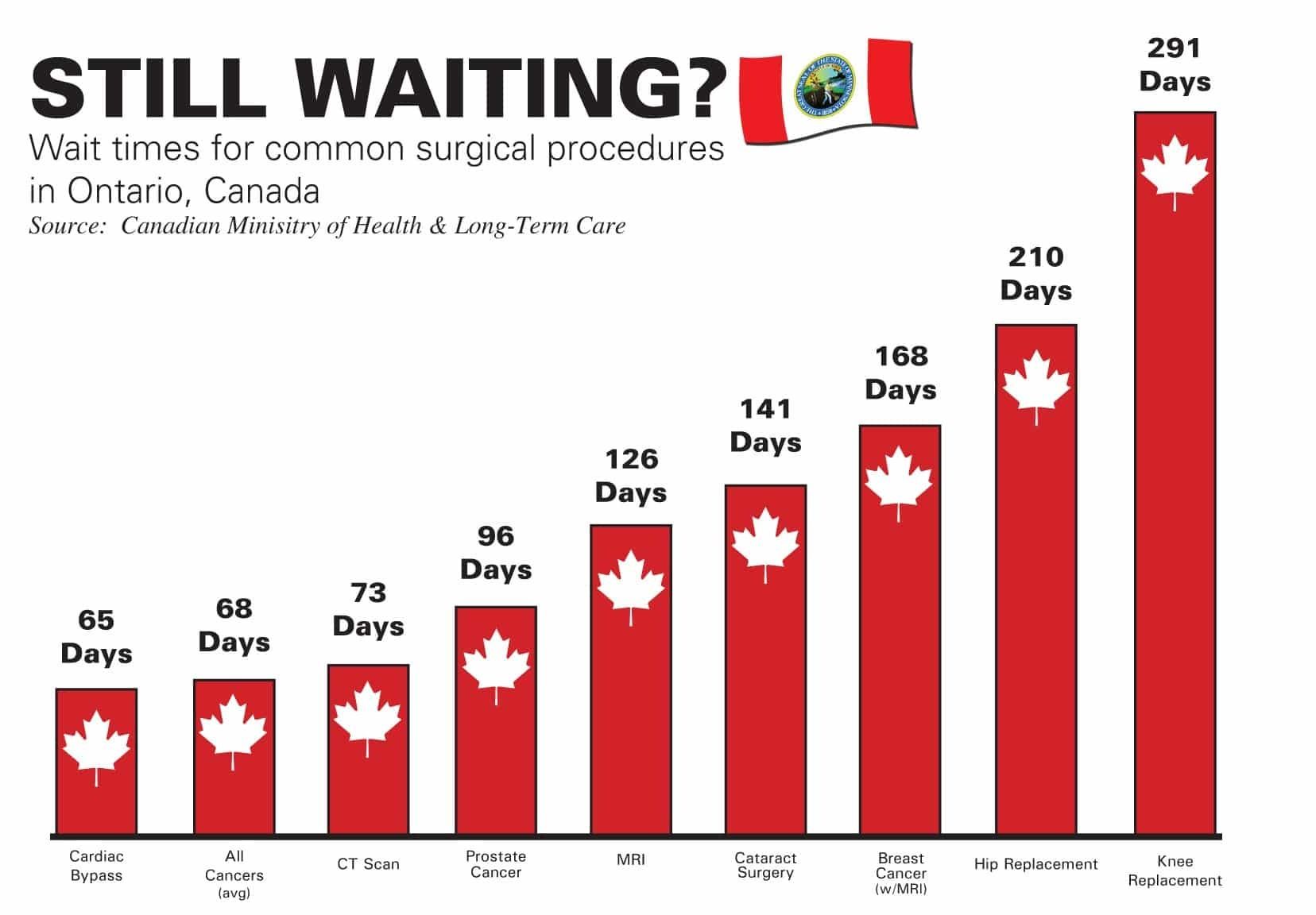
One of the many reasons we’ll discuss today.
Why I left Canada.
To clarify, this is not going to be about Canada’s politics. Moreso about Canada’s economy, psychology, and cultural environment.
Whether you’re Canadian or not, I hope my story invites you to reflect on where you’re choosing to build your life. Because staying where you are is a choice.
Let’s dive in.
And if you want to hear more of my personal story of leaving Canada, you can tune in on YouTube:
The Canadian Dream Is a Lie
Let’s start with the obvious: housing.
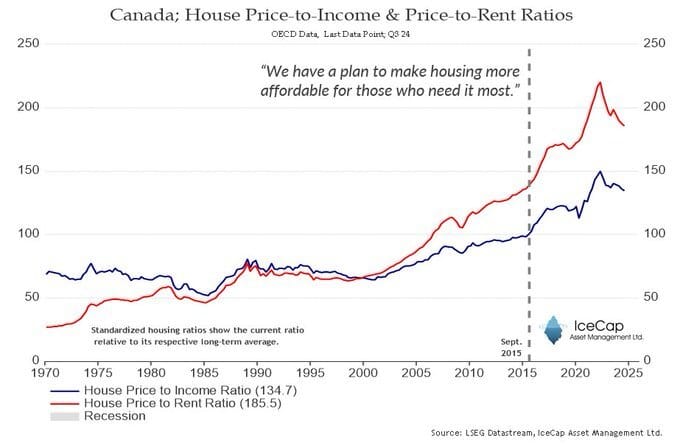
Despite a small reprieve in the past year, housing prices are still rising much faster than they ever did in the past.
In most parts of Canada (especially Toronto or Vancouver, Canada’s two largest cities) real estate has become extremely unaffordable.
For decades, wages have simply not been keeping up.
And although this has largely been the story in many developed nations across the globe, Canada’s pathology is uniquely acute:
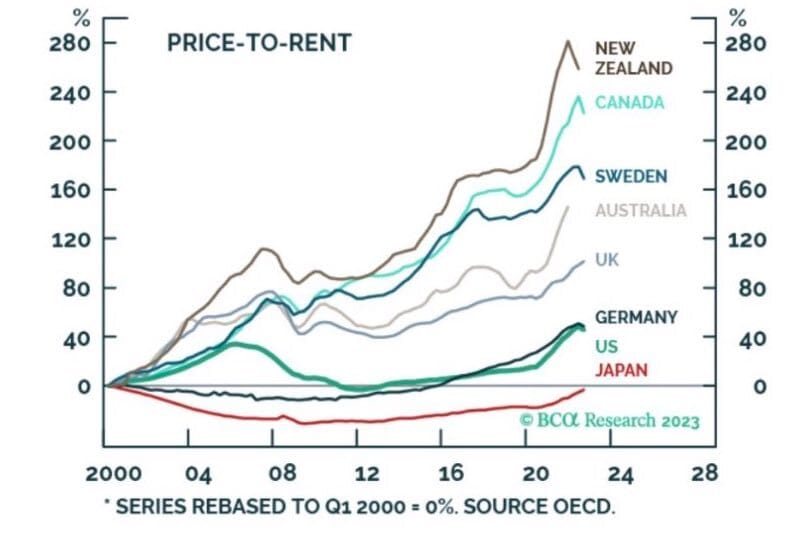
The price-to-rent ratio shows how much more expensive it is to own a home vs. rent. Now compare Canada to the US on this chart.
Meanwhile, every Canadian reading this between the ages of 18 and 40 heard the same thing from their parents:
“Want to grow your wealth? Just buy a home! Get on the property ladder. Look, it worked for us…”
Thanks grandpa, but you lived in a very different real estate environment.
If you’re interested, I’ll do a deep-dive on Canadian real estate in the future, because the rot goes much deeper than price-to-rent ratios.
Like the insanity of the “fixed-payment variable-rate mortgage”…
For now, the key message is this:
Young Canadians are giving up on the idea of owning their home.
And even if they do manage to get onto the property ladder, a mortgage is essentially a 30+ year bet that inflation, interest rates, and the global economy will all cooperate.
And for what?
So you can spend 50%+ of your income on mortgage payments, just to build all of your wealth in the paper value of your home? So you can be stuck in the same place for the next few decades?
No thank you.
Trusted by millions. Actually enjoyed by them too.
Most business news feels like homework. Morning Brew feels like a cheat sheet. Quick hits on business, tech, and finance—sharp enough to make sense, snappy enough to make you smile.
Try the newsletter for free and see why it’s the go-to for over 4 million professionals every morning.
Inflation vs. Wages: A Losing Game
Housing aside, Canada is just expensive in general. And post-COVID, it’s only gotten worse.
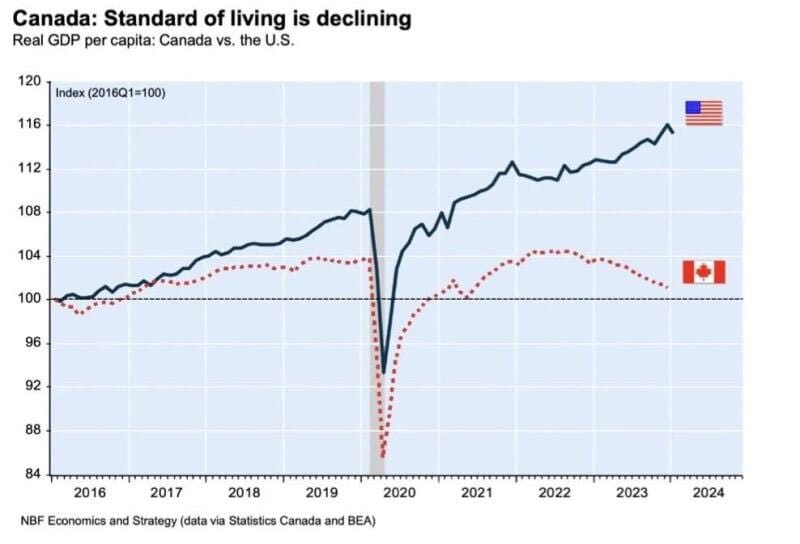
Canada often gets lumped in with the USA. The two countries are similar in many ways, and we share a massive land border, after all.
But economically speaking, Canada and the USA are extremely different.
Take, for example, GDP per capita.
The past decade has been marked by technological innovations — the breakthrough of AI, new renewable energy infrastructure, a flourishing knowledge worker economy, and much more.
You would think that Canada would benefit from that… right?
Wrong.
Canada’s standard of living (as measured by GDP per capita) is basically flat in the past 10 years.
Part of the issue is that entrepreneurship in Canada is on the decline:
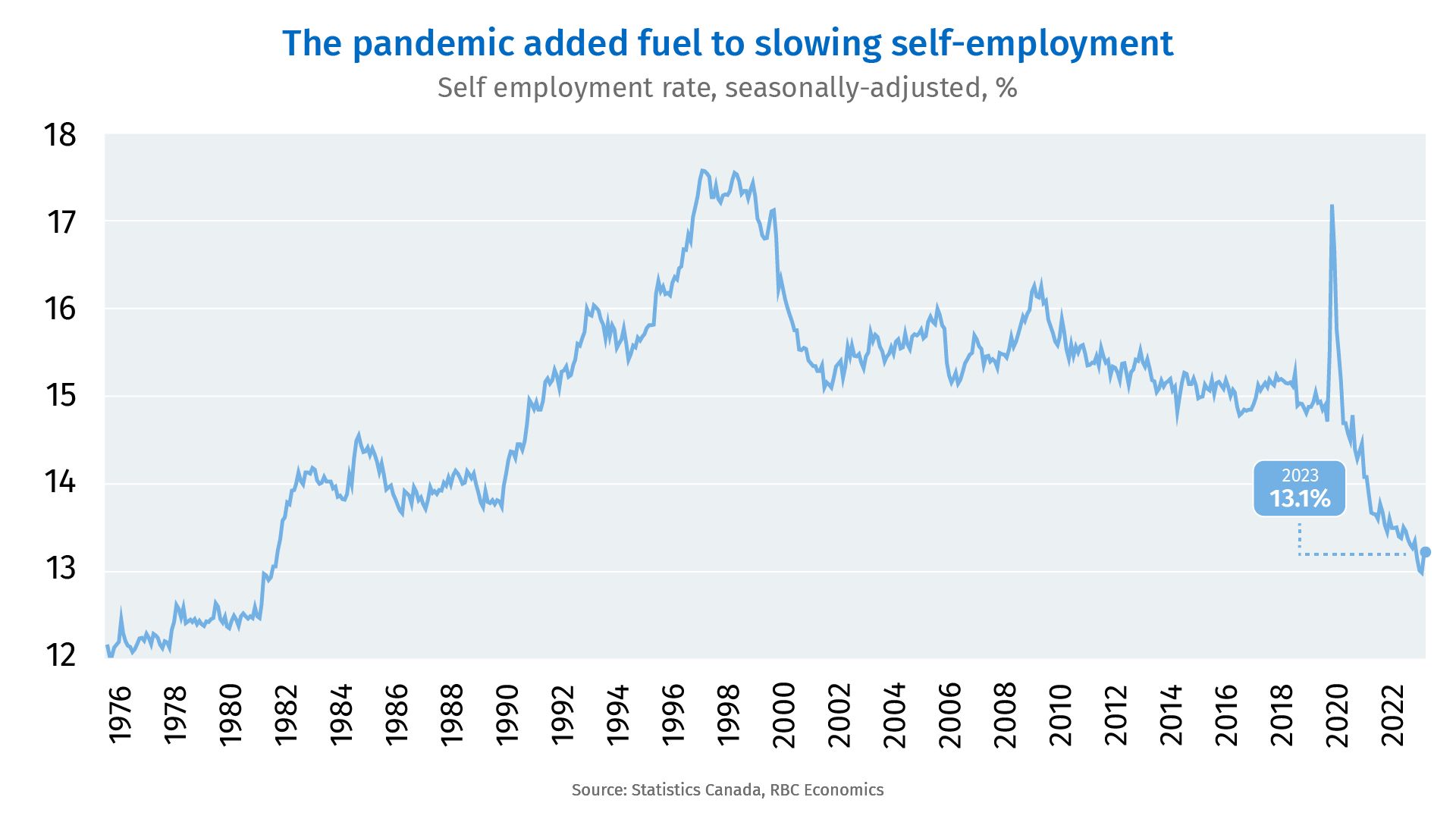
To make matters worse, Canadian salaries lag far behind places like the U.S.
Same hours, same stress for less upside. There has been a brain drain of talent from Canada to the US for as long as I can remember.
And then of course, there’s the Canadian dollar.
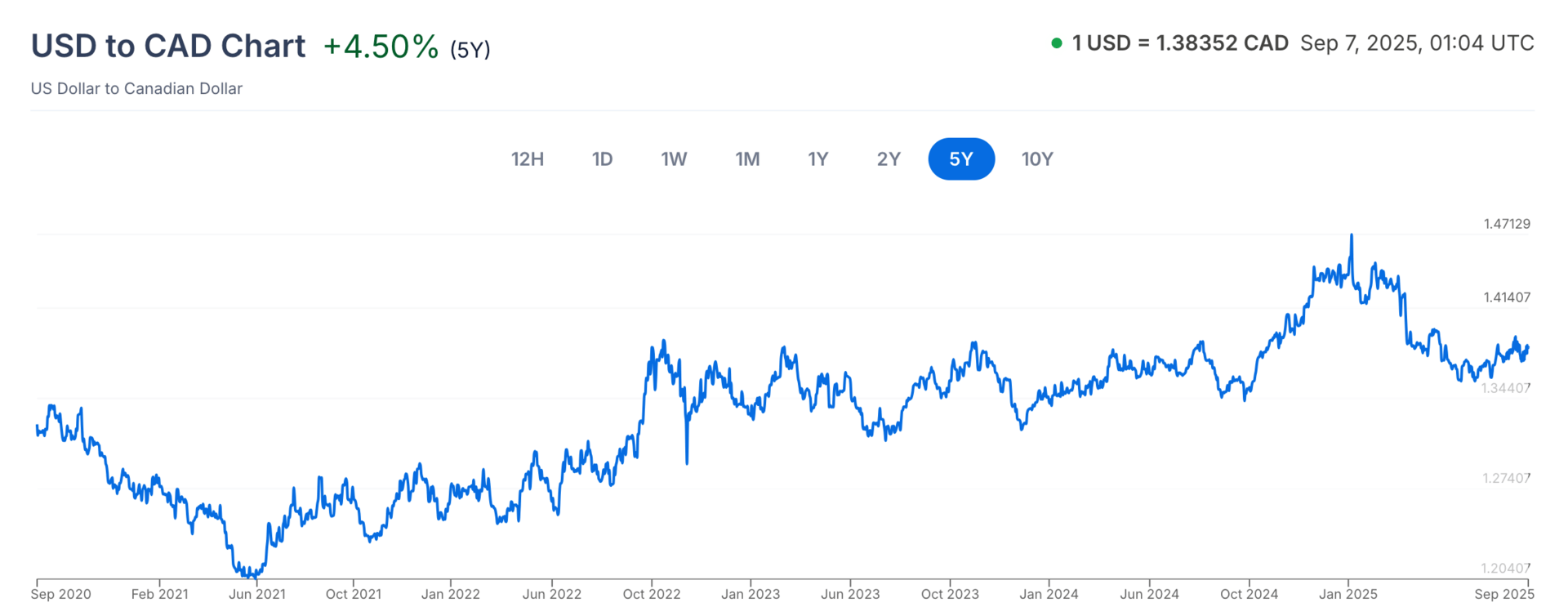
The Canadian dollar has been weakening ever since the pandemic.
In short, living in Canada is like trying to build your wealth on hard mode.
But Canada’s issues aren’t just economic.
Safety, Cleanliness & the Post-COVID Decay
We have to talk about the intangibles. How it feels to live in Canada.
In my hometown of Toronto, post-COVID, things really changed.
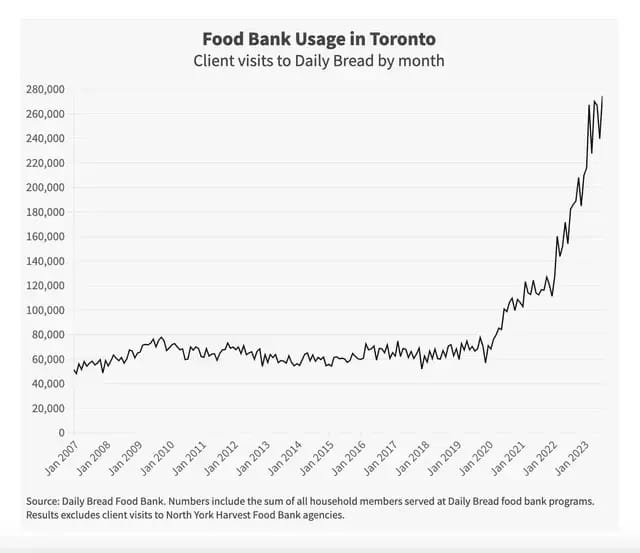
Public spaces felt less safe. Streets are dirtier. Transit is more chaotic.
Infrastructure is falling apart.
I share in this week’s YouTube video that while Seoul has been adding its 23rd and 24th subway lines, Toronto lost one of its 4 subway lines…
And the data supports this:
Toronto’s homeless population has doubled between 2021 and 2024
Food bank usage has skyrocketed (5x from pre-pandemic levels)
Fentanyl is rampant (82% of opioid related deaths)
Youth unemployment in Toronto hit 16.3% in 2024, a record high
Healthcare wait times are among the highest in the developed world
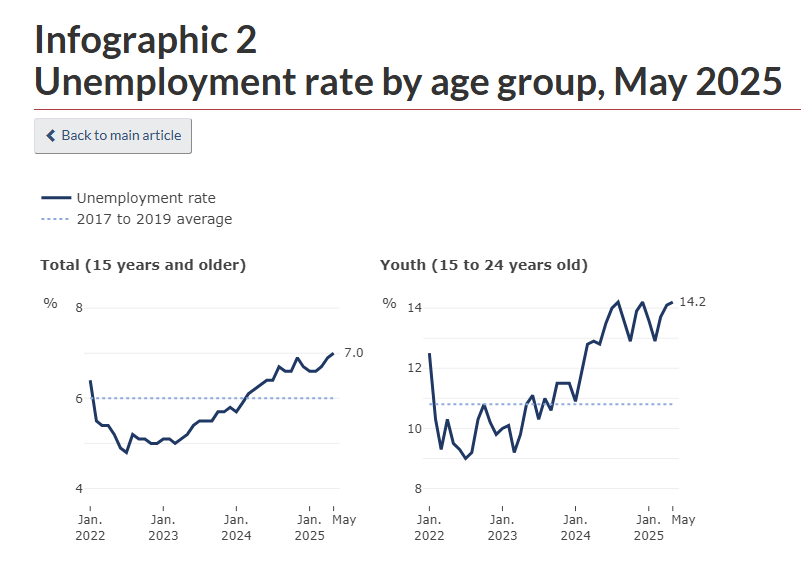
There’s this subtle kind of tension you start to feel… this sense that things aren’t improving, they’re degrading.
And if you want to hear more about Canada’s healthcare system, check out this week’s YouTube video.
—
Recently, I spoke with a good friend from Toronto about this feeling of decay.
His take was basically: “Yeah, Toronto is kind of getting worse… but that’s just the way things are in big cities.”
I disagree. In fact, I refuse to believe this, and it’s a big reason I left.
And that takes me to my last point.
The “Bubble Mentality” of Canada
Perhaps the hardest thing to talk about regarding Canada is the psychological environment.
There’s a complacency in Canada that’s hard to describe unless you’ve lived in it.
People feel comfortable, but not necessarily happy.
There’s a culture of playing it safe and not taking risks.
There’s immense pressure to conform to the “Canadian” worldview (and the acceptable range of opinions).
My wake-up call was the Canadian trucker protest in 2022.
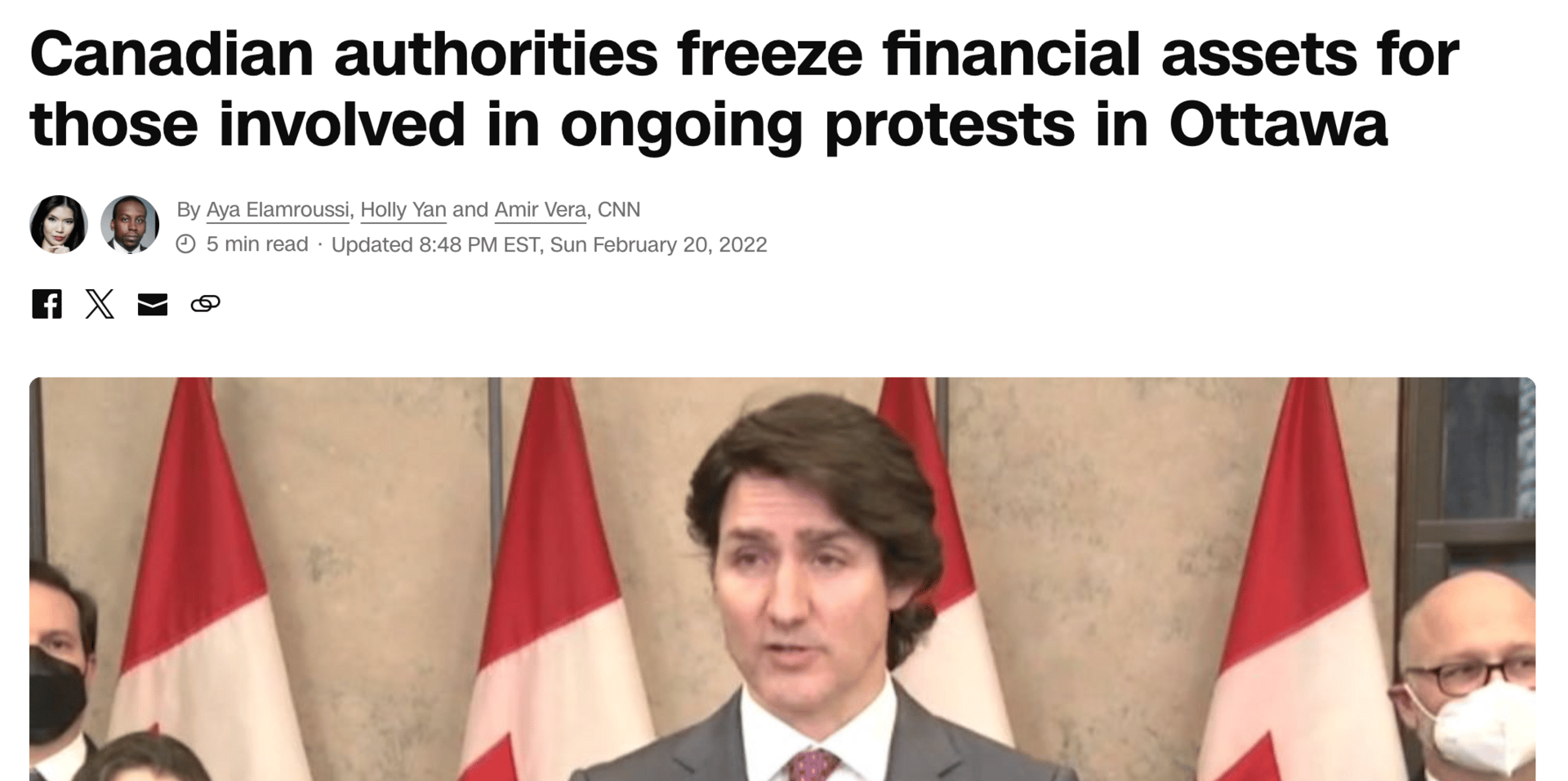
To summarize, truckers from across Canada drove to Parliament Hill in Ottawa to protest the federal government’s vaccine mandates and other Covid protection measures.
How did the Canadian government respond to the protests?
The government invoked the Emergencies Act and froze the bank accounts of regular Canadians who donated to the protest online.
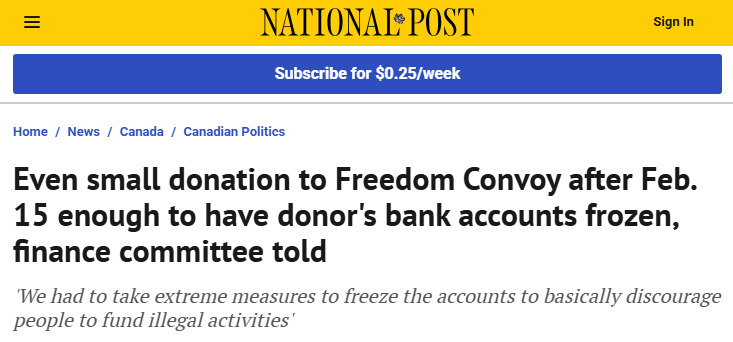
I was appalled.
And when I brought this up with my Canadian friends… most of them didn’t care.
“It was only 70 bank accounts.”
“They were unfrozen after 4 days.”
“It wasn’t a peaceful protest, it was violent.”
“It wasn’t a legal protest.”
Irrelevant. Most Canadians didn’t care that their government abused its power and imposed financial tyranny that would make Russia and China envious.
In short, Canada has very strong groupthink.
And once I found myself disagreeing with that groupthink, I realized that Canada is not the place I want to build my life, nor the environment I want to raise my children.
I still pray that one day, that changes.
Action Item: Assess Your Environment
Don’t get me wrong… leaving your hometown is extremely hard. I miss my family. I miss my friends. Dearly.
But the place you live is a choice. And most people default into that choice because it is easy and comfortable. Especially Canadians.
Where you live will shape your:
And much more.
This week, ask yourself the following questions:
1. If I could choose to live anywhere in the world… would I choose my current city?
2. Will I be happy to live the rest of my life in my current city?
3. Is my current city where I want to raise my kids?
There are plenty of other questions you could use. These are the ones that impacted me the most, and pushed me to make a change.
Let me know how it goes.
And if you enjoyed this week’s article and have a friend or family member who you think would enjoy reading it, forward it their way. Ideally a Canadian 😉
To your prosperity,
Brandon @ Wealth Potion


